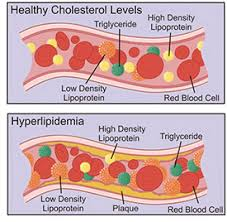A client was admitted to the emergency department with slurred speech and impaired motor coordination. The blood alcohol level is over 300 mg/dL. The physician orders thiamine for the client. The nurse understands that the physician ordered thiamine to:
Prevent Wernicke's encephalopathy.
Prevent alcoholic hepatitis.
Rehydrate the client.
Prevent pancreatitis.
The Correct Answer is A
Choice A Reason
Thiamine, or vitamin B1, is essential for brain function and the metabolism of carbohydrates. In the context of high blood alcohol levels, thiamine is administered to prevent Wernicke's encephalopathy, a serious neurological disorder. This condition is often precipitated by a thiamine deficiency, which can be exacerbated by alcohol abuse. Alcohol consumption can impair thiamine absorption and utilization, leading to depleted stores. Wernicke's encephalopathy is characterized by symptoms such as confusion, ataxia, and ophthalmoplegia, and if left untreated, it can progress to Korsakoff syndrome, a chronic and debilitating condition.
Choice B Reason
While alcoholic hepatitis is a concern in individuals with excessive alcohol intake, thiamine is not specifically used to prevent this condition. Alcoholic hepatitis is inflammation of the liver due to alcohol abuse, and its prevention primarily involves abstinence from alcohol, nutritional support, and medical management of liver inflammation. Thiamine does not play a direct role in preventing liver inflammation but is crucial for overall nutritional replenishment in individuals with alcohol use disorder.
Choice C Reason
Rehydration is indeed important for clients with high blood alcohol levels; however, thiamine does not serve this purpose. Rehydration typically involves the administration of intravenous fluids to restore fluid balance and electrolytes. Thiamine is not a rehydrating agent but is given to prevent neurological complications associated with thiamine deficiency, which can be seen in individuals with chronic alcoholism.
Choice D Reason
Preventing pancreatitis is not the primary reason for administering thiamine in this scenario. Pancreatitis, an inflammation of the pancreas, can be associated with chronic alcohol abuse, but thiamine is not used as a preventative treatment for this condition. The management of pancreatitis involves addressing the underlying causes, supportive care, and sometimes hospitalization for more severe cases.
Nursing Test Bank
Naxlex Comprehensive Predictor Exams
Related Questions
Correct Answer is D
Explanation
Choice A Reason
Performing a bladder scan can help determine the volume of urine in the bladder and assess for urinary retention, which could contribute to bladder spasms. However, this is not typically the first intervention. The priority is to ensure that the catheter is patent and draining correctly, as blockages can cause immediate discomfort and increased spasms
Choice B Reason
Stopping the irrigation could be considered if there is a concern that the CBI is contributing to the spasms. However, this would not be the first action taken. It is essential first to assess the catheter's patency and the flow of the irrigation to rule out any obstruction or kinking causing the spasms.
Choice C Reason
Administering an oral analgesic may help alleviate the discomfort caused by bladder spasms, but it does not address the underlying cause. Pain relief is important, but the initial step should be to check for and resolve any mechanical issues with the catheter system that could be causing the spasms.
Choice D Reason
Ensuring that the catheter is draining properly is the first and most crucial intervention. If the catheter is blocked or kinked, it can cause bladder distention and increased spasms. Checking the catheter's patency and the flow of irrigation can quickly resolve the issue and provide relief to the patient. If the catheter is found to be obstructed, resolving the blockage can decrease the severity of the spasms and improve the patient's comfort.
Correct Answer is D
Explanation
Choice A Reason:
Gas pains, while uncomfortable, are not typically a serious adverse effect of simvastatin and do not usually require immediate medical attention unless they are severe or persistent.
Choice B Reason:
Headaches are a common side effect of many medications, including simvastatin, and are not generally considered an emergency. However, if the headache is severe, persistent, or accompanied by other symptoms, it should be reported to a healthcare provider.
Choice C Reason:
Occasional constipation is another common side effect and is not usually a cause for immediate concern unless it becomes severe or chronic.
Choice D Reason:
Muscle weakness and pain, especially in the calves, can be a sign of a serious condition called rhabdomyolysis, which is a rare but serious adverse effect of statins like simvastatin. This condition involves the breakdown of muscle tissue and can lead to kidney damage. It should be reported to a healthcare provider immediately.

Whether you are a student looking to ace your exams or a practicing nurse seeking to enhance your expertise , our nursing education contents will empower you with the confidence and competence to make a difference in the lives of patients and become a respected leader in the healthcare field.
Visit Naxlex, invest in your future and unlock endless possibilities with our unparalleled nursing education contents today
Report Wrong Answer on the Current Question
Do you disagree with the answer? If yes, what is your expected answer? Explain.
Kindly be descriptive with the issue you are facing.
